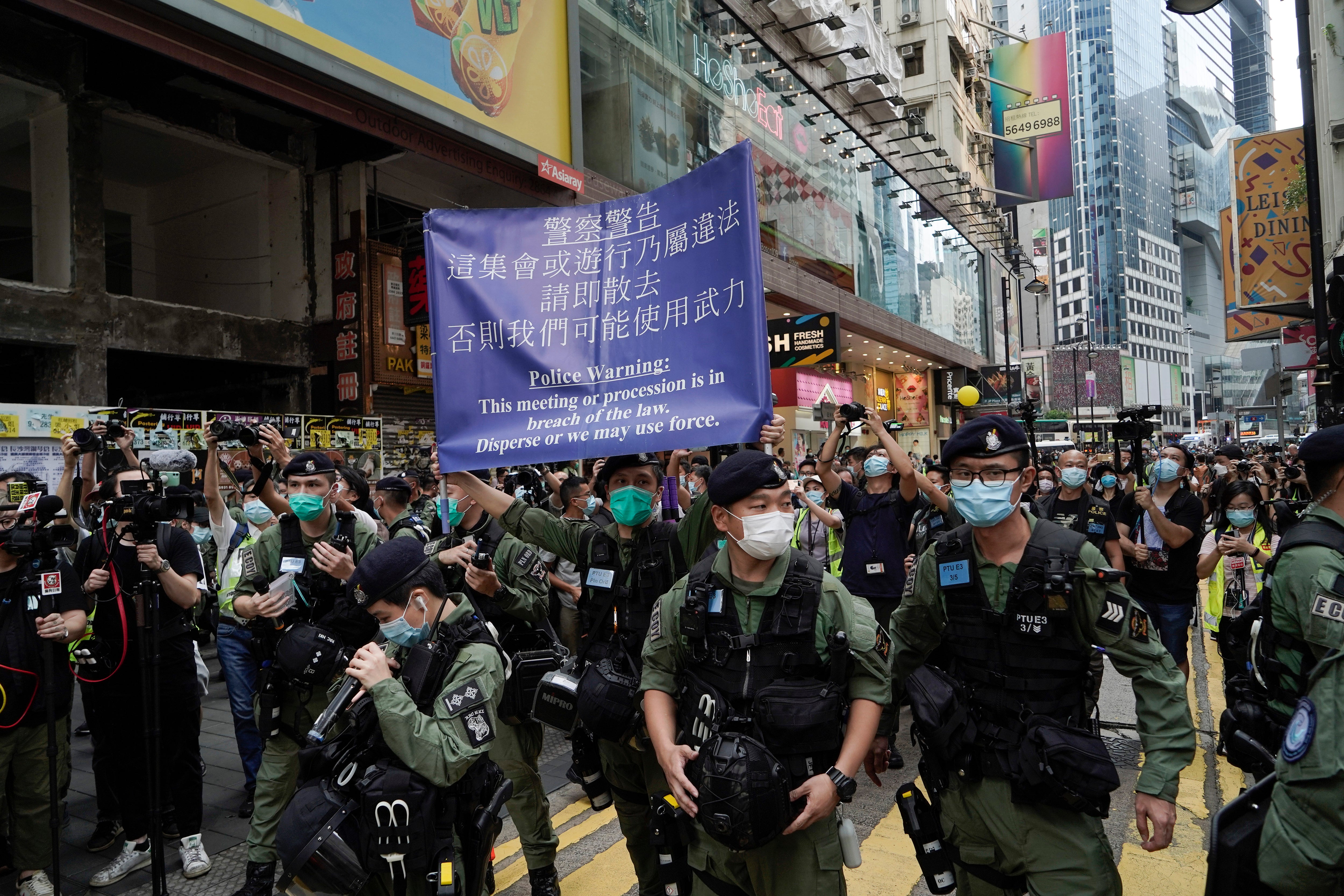Hong Kong police patrol against protests on China holiday
Hong Kong police came out in force at a popular shopping district on China’s National Day holiday after online calls urged people to join protests

Your support helps us to tell the story
From reproductive rights to climate change to Big Tech, The Independent is on the ground when the story is developing. Whether it's investigating the financials of Elon Musk's pro-Trump PAC or producing our latest documentary, 'The A Word', which shines a light on the American women fighting for reproductive rights, we know how important it is to parse out the facts from the messaging.
At such a critical moment in US history, we need reporters on the ground. Your donation allows us to keep sending journalists to speak to both sides of the story.
The Independent is trusted by Americans across the entire political spectrum. And unlike many other quality news outlets, we choose not to lock Americans out of our reporting and analysis with paywalls. We believe quality journalism should be available to everyone, paid for by those who can afford it.
Your support makes all the difference.Hong Kong police were out in force on China’s National Day holiday Thursday, detaining and searching people on the streets of a popular shopping district after calls were made online urging people to take part in anti-government protests.
National Day, celebrating the founding of the People s Republic of China has become a day of protest in Hong Kong by those who oppose Beijing's increasing control in the semi-autonomous city.
Small groups of protesters gathered in the popular Causeway Bay shopping district, although they were outnumbered by police. Social-distancing restrictions due to the coronavirus meant large-scale protests don't have authorization.
In the afternoon, police cordoned off certain areas of the district and searched several people on the streets. A group of protesters chanted slogans including “Disband the police,” and police unfurled their blue warning banner that urged protesters to disperse, otherwise force may be used.
Protests against the Hong Kong and mainland Chinese governments swelled last year, and Beijing sought to clamp down on anti-government sentiment in the city with a national security law that took effect June 30.
The law outlaws subversive, secessionist, and terrorist activity in Hong Kong, as well as collusion with foreign powers to interfere in the city's internal affairs. The U.S. and Britain accuse China of infringing on the city’s freedoms, and the U.S. has imposed sanctions on government officials in Hong Kong and China over the law.
At a National Day reception, Hong Kong leader Carrie Lam said “stability has been restored to society while national security has been safeguarded” under the new law.
Lam also accused some foreign governments of holding “double standards” and leveling unjustified accusations against the authorities who implement the new law.